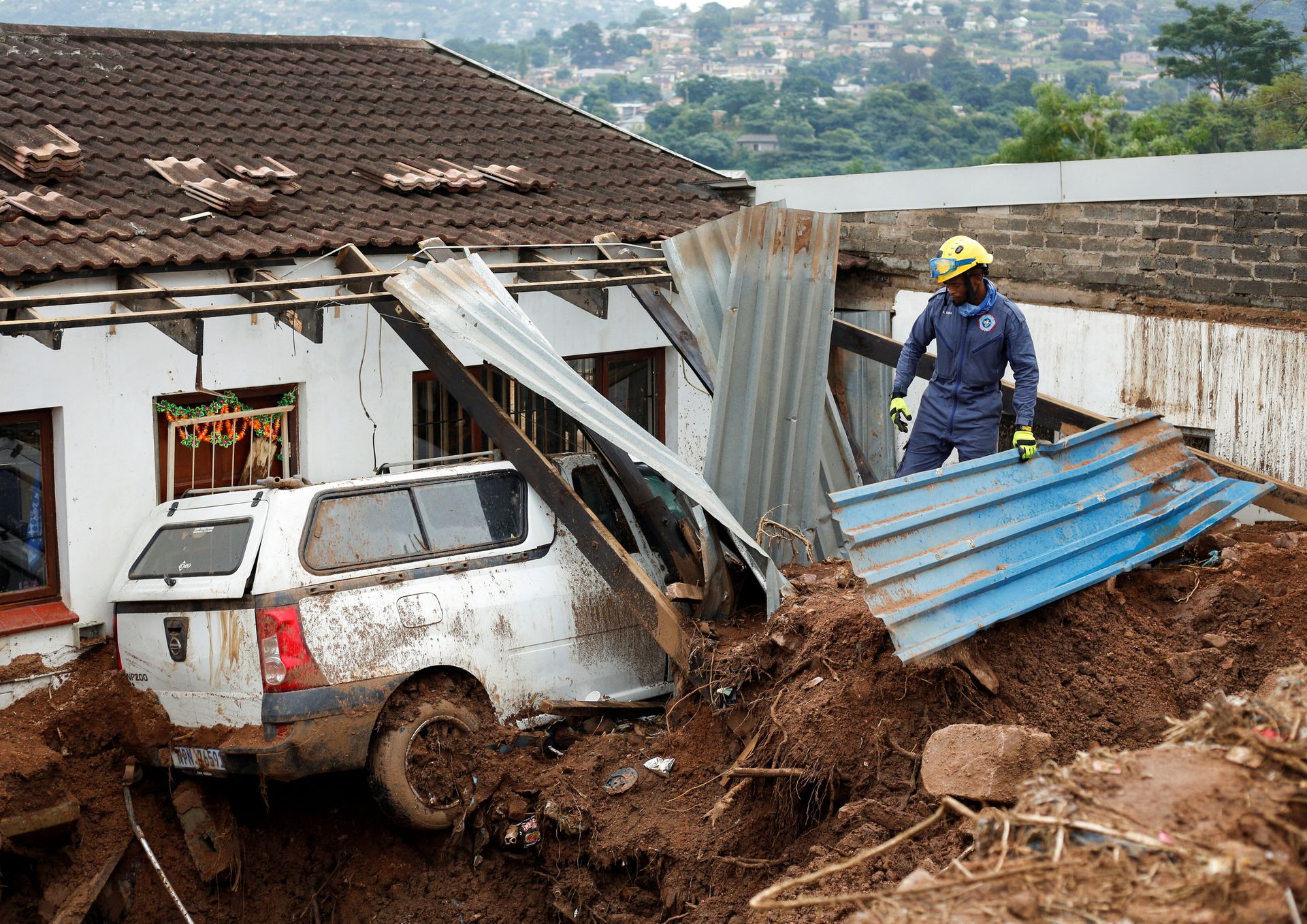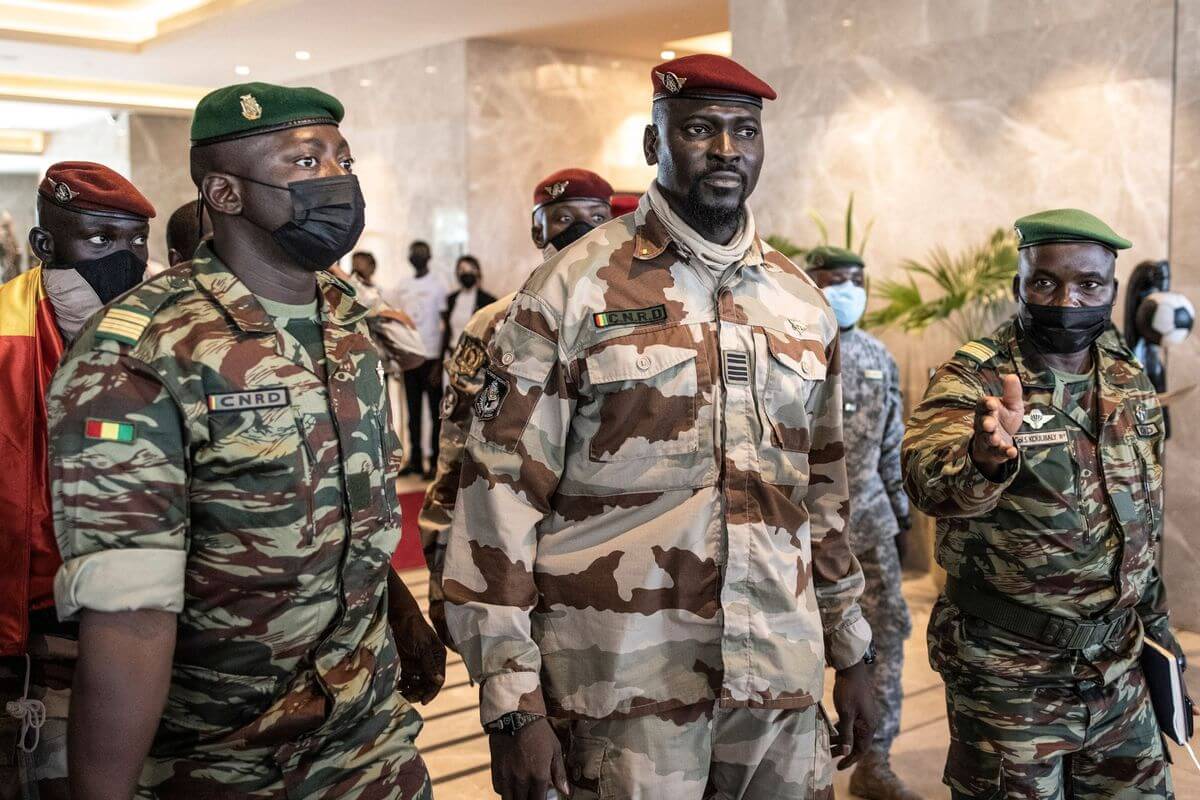South Asia
Newly-appointed Pakistani Prime Minister (PM) Shehbaz Sharif wrote a letter to Indian PM Narendra Modi calling for “meaningful” dialogue and the “peaceful resolution” of issues between the country. He also called for the expedited discussions on “all outstanding disputes,” including the conflict in Jammu and Kashmir. [The Hindu]
Sri Lankan Finance Minister Ali Sabry is set to seek a $4 billion bailout from the International Monetary Fund at a meeting in Washington next week. This “emergency funding” will help Sri Lanka get “back on track” by reviving its foreign exchange reserves. [Al Jazeera]
Central Asia and the Caucasus
The freedom of expression situation in Kyrgyzstan has worsened over the last year due to increasing intolerance of authorities, a report by the Media Policy Institute said. The report notes the government has severely cracked down on dissenting opinions and used services like troll farms to harass journalists and activists, which has in turn created a climate of intolerance against the media and civil society. [24.kg]
Armenia said on Saturday that Azerbaijani troops that crossed the line of contact and entered the ‘neutral zone’ in the Martakert region on Saturday returned to their original position after negotiations with the Russian peacekeeping mission stationed in the area. Tensions escalated in Nagorno-Karabakh last month after Yerevan accused Azerbaijani troops of entering Armenian territory. [Public Radio of Armenia]
East and Southeast Asia
Myanmar’s military junta released over 1,600 prisoners from jails across the country on Sunday to mark the Buddhist new year. While the government did not specify whether those pardoned were protesters or common criminals, sources claim that political prisoners were not pardoned. The junta has previously released hundreds of political prisoners only to almost immediately re-arrest them. [The Straits Times]
Kim Jong-un oversaw a huge public procession to celebrate the birthday of North Korea’s founding father, the late Kim Il Sung, on Friday. Although the holiday is one of the most important events in Pyongyang’s political calendar, the anniversary passed without an anticipated display of the nuclear-armed nation’s military strength. [Channel News Asia]
Europe
On Friday, thousands of pro-Russia Serbs gathered in the Serbian capital of Belgrade to criticise President Aleksandar Vučić’s recent decision to distance Serbia from Russia. The protesters, many of whom belonged to ultranationalist groups, chanted “Serbians and Russians are brothers,” and “No NATO” (North Atlantic Treaty Organization). Experts suggest that Belgrade’s decision has been prompted by Vučić’s desire to purchase two dozen Western fighter jets, perhaps for a defensive or offensive manoeuvre against Kosovo. [Reuters]
In an interview published on Sunday, Italian Prime Minister Mario Draghi said Europe could reduce its dependence on Russian oil and gas by diversifying energy sources and finding new suppliers. “Diversification is possible and feasible in a relatively short time, shorter than we imagined just a month ago,” said Draghi. In fact, Italy recently signed a deal with Algerian state-owned oil company Sonatrach. [Politico]
Russia barred British Prime Minister Boris Johnson, Foreign Secretary Liz Truss, and Defence Secretary Ben Wallace from entering the country in response to the United Kingdom (UK) imposing new penalties against 206 Russian citizens. The Russian Foreign Ministry announced the restrictions in response to the UK’s “unprecedented hostile actions” against Russians. [Politico]
Latin America and the Caribbean
United States border authorities reportedly arrested 210,000 migrants attempting to enter the country through the southern border with Mexico last month, marking the highest monthly total in two decades and a 24% increase from the same month last year. These numbers are expected to rise even further next month, as the Biden administration has announced the end of pandemic-induced border controls from May 23. [Reuters]
The International Monetary Fund reported on Friday that inflation in Latin America’s ‘major economies’ is at its highest level in 15 years due to the twin ‘shocks’ of the COVID-19 pandemic and the Russia-Ukraine war. The organization noted that inflation over the past 12 months as 284.4% in Venezuela, 55.1% in Argentina, 11.30% in Brazil, 10.1% in Paraguay, 9.4% in Chile, 9.38% in Uruguay, 8.53% in Colombia, 7.45% in Mexico, and 6.82% in Peru. This rise has largely been attributed to increases in food, fuel, and transport costs and forms part of a wider global phenomenon. [MercoPress]

Middle East and North Africa (MENA)
Ten Al Qaeda terrorists escaped from a prison in Yemen’s Hadhramaut province on Friday after staging a quarrel and overpowering guards who came to intervene. The Yemeni branch of Al Qaeda in the Arabian Peninsula is considered the most dangerous in the regional network and has attempted to conduct multiple attacks in the United States. [Associated Press]
At least 35 migrants from North Africa are presumed dead after their boat capsized near Libya’s coast, the International Organization for Migration (IOM) said on Saturday. It was the second such incident near Libya in less than a week. On Tuesday, a migrant boat capsized near the same area killing 18 people. Both groups were hoping to reach European shores to seek asylum. [Associated Press]
North America
Over the weekend, the United States (US) experienced three mass shootings in South Carolina, Pittsburgh, and Pennsylvania, which together resulted in injuries to at least 31 people. In Pittsburgh, two minors were killed. Only authorities in South Carolina have made any arrest so far, as police in the other two states are continuing their search for the perpetrators. The Gun Violence Archive estimates there have been 139 mass shootings in the US this year alone. [Newsweek]
On Sunday, Senator Mark Kelly (D-AZ) announced that a group of four United States (US) lawmakers will travel to Poland, India, Germany, and the United Arab Emirates in an effort to gather support for Ukraine. In a joint statement, the partisan group noted they also plan to meet leaders from Nepal, one of the few South-Asian countries to condemn Russia’s actions in Ukraine. [The Hill]
Oceania
On Monday, at least 50 members of Wellington’s Pakistani community rallied in favour of former Pakistani Prime Minister Imran Khan, who was ousted in a no-confidence motion last week. Banners reading “Behind you skipper from this corner of the world” and “When a leader falls for the nation, the nation rises for their leader” were spotted at Wellington’s Civic Square. [Stuff]
New Zealand’s Prime Minister, Jacinda Ardern, is travelling to Singapore and Japan for the first time since the onset of the COVID-19 pandemic to bolster the country’s trade ties with Asian countries. Ardern will be accompanied by several business executives, including from the dairy giant Fonterra and the Christchurch and Auckland airports. Japan is New Zealand’s fourth and Singapore’s fifth-largest export market. [The Canberra Times]
Sub-Saharan Africa
The death toll from floods in South Africa’s eastern KwaZulu-Natal province, which have in particular hit the city of Durban, has now risen to at least 440, with infrastructural damage estimated at over $684 million. The floods have left thousands homeless, and destroyed roads, ports, and power and water lines. [Reuters]
Guinean interim Prime Minister Mohamed Béavogu, who leads the country’s transitional government, announced on Friday that the country will not be returned to civilian rule until the ruling junta carries out a census, publishes voter lists, drafts a new constitution, organises a referendum ballot, drafts new laws, holds local and legislative elections, and establishes new national institutions. The leader of the Guinean army’s Special Forces Group, Lieutenant Colonel Mamady Doumbouya, led a coup to depose President Alpha Condé and dissolve his government last September; he now serves as the interim president. [Africanews]

